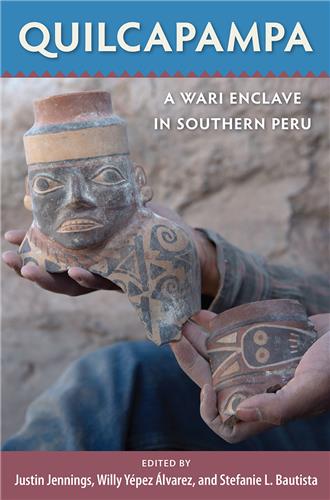The story of an iconic artifact that has prevailed over impossibly long odds, this book explores the deep past of the Key Marco Cat, fascinating readers with the miracle and beauty of this rare example of pre-Columbian art.
Browse by Subject: Anthropology and Archaeology
Please note that while you may order forthcoming books at any time, they will not be available for shipment until shortly before publication date
Combining years of ethnographic research with British imperial archival sources, this book reveals how cultural heritage has been negotiated by colonial, independent state, and community actors in Belize from the late nineteenth century to the present.
Analyzing evidence from the site of Quilcapampa in the Sihuas Valley of Southern Peru, contributors to this volume discuss the ninth-century settlement’s relationship to the broader Wari empire and reimagine the empire’s role in the widespread changes of the Andean Middle Horizon period.
This volume illuminates the influence of the Dutch empire in North America, assembling evidence from seventeenth-century settlements located in present-day New York, New Jersey, Connecticut, Pennsylvania, and Delaware.
Focusing on three communities in the Americas, this book layers archaeological research with oral narratives and social memories, demonstrating a way of reconciling the tension between Western scientific and local Indigenous approaches to history.
In a sweeping survey of archaeological sites dating from a span of thousands of years and located across continents, this book asks fundamental questions about the place of cultural heritage in Western society.
Falls of the Ohio River presents current archaeological research on an important landscape feature of what is now Louisville, Kentucky, demonstrating how humans and the environment mutually affected each other in the area for the past 12,000 years.
This volume details how new theories and methods have recently advanced the archaeological study of initial human colonization of islands around the world, including in the southwest Pacific, the Mediterranean, the Caribbean, and Southeast Asia.
This volume summarizes the remarkably diverse archaeological discoveries made during the past half century of investigations at the site of St. Mary’s City, the first capital of Maryland and one of the earliest European settlements in America.
This book presents a temporally and geographically broad yet detailed history of an important form of Native American architecture, the platform mound, revealing unexpected continuities in moundbuilding over many thousands of years.











